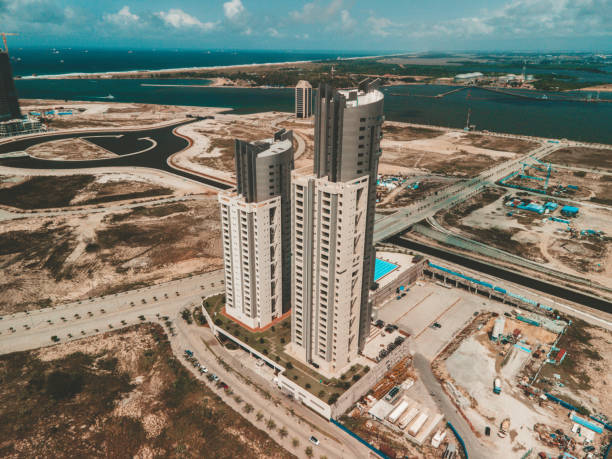Fascinating Facts About Nigeria's Real Estate
Posted on 16/08/2023 8:14 AM | by NaijaHouses

Did You Know?
- Thriving Industry: Nigeria boasts a robust real estate industry, contributing significantly to its economy. The sector plays a pivotal role in the nation's Gross Domestic Product (GDP), providing employment opportunities and driving economic growth.
- Urban Boom: Nigeria's urban population is rapidly expanding, leading to increased demand for housing and infrastructure. This trend has sparked innovative real estate developments to accommodate the evolving urban landscape.
- Diverse Property Types: From luxury apartments and sprawling estates to vibrant commercial spaces, Nigeria's real estate market offers a diverse range of property options to cater to various needs and preferences.
- Innovative Technology: The integration of technology, such as blockchain and Artificial Intelligence (AI), is transforming real estate transactions, enhancing security, transparency, and efficiency.
- Emerging Markets: Beyond major cities like Lagos and Abuja, emerging real estate markets are gaining attention. Cities like Port Harcourt, Enugu, and Uyo are experiencing increased investment and development.
- Affordable Housing Initiatives: Efforts are underway to address the affordable housing gap. Both government and private sector initiatives aim to provide accessible housing solutions for low and middle-income individuals and families.
- Foreign Investment: Nigeria's real estate sector attracts foreign investors seeking lucrative opportunities. The Nigerian government has implemented policies to encourage foreign direct investment in the industry.
- Cultural Influence: Real estate design often draws inspiration from Nigeria's rich cultural heritage. This blend of modernity and tradition is evident in the architecture and aesthetics of many properties.
- Green Building Movement: Sustainable and eco-friendly construction practices are gaining traction. Green buildings not only reduce environmental impact but also offer energy-efficient and cost-effective solutions.
- Legal Reforms: The Nigerian Land Use Act and other related legislation continue to undergo reforms to improve land administration, streamline property registration processes, and enhance investor confidence.
- Rise of Co-working Spaces: The growth of entrepreneurship and startups has led to an increase in co-working spaces and shared offices, catering to the evolving work culture.
- Property Portals: Online platforms like NaijaHouses have transformed property hunting, allowing buyers and renters to explore listings and make informed decisions conveniently.
- Infrastructure Impact: The development of infrastructure, including roads and transportation networks, significantly influences real estate values and investment potential in various regions.
- Cultural Hubs: Cultural and entertainment hubs, such as Lagos' Lekki Peninsula and Abuja's Central Business District, drive real estate demand due to their vibrant social scenes and amenities.
- Property Investment: Real estate remains a popular investment avenue for Nigerians, providing avenues for wealth creation and long-term financial security.
As Nigeria's real estate sector continues to evolve, these intriguing facts highlight the dynamic nature of the industry and its profound impact on the nation's growth and development.
